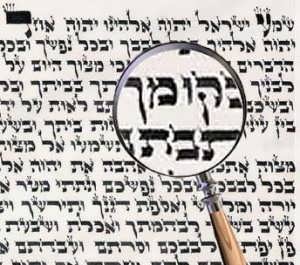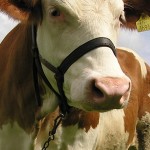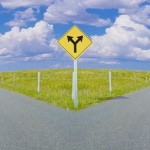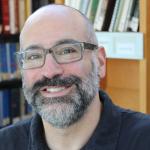The most defining characteristic of an observant Jewish life is fidelity to the halacha, to Jewish law. The halacha is an all-encompassing system that governs a person’s life from the moment they wake up in the morning until they go to sleep at night. There is little area  in one’s daily routine that is not nuanced by Jewish law. A person who maintains a life devoted to halacha is often asked about the perceived burden of doing so.1 How is it possible to live life encumbered by so many details about everything one does? Yet, those asking fail to recognize that every person living in any society governed by law lives their life surrounded by a legal code as well. The failure to realize this reality is, in effect, the answer to their very question for their ability to live a meaningful, fulfilled life is not hampered by conforming to the laws of their society.
in one’s daily routine that is not nuanced by Jewish law. A person who maintains a life devoted to halacha is often asked about the perceived burden of doing so.1 How is it possible to live life encumbered by so many details about everything one does? Yet, those asking fail to recognize that every person living in any society governed by law lives their life surrounded by a legal code as well. The failure to realize this reality is, in effect, the answer to their very question for their ability to live a meaningful, fulfilled life is not hampered by conforming to the laws of their society.
However, the observance of the halacha is much more than only a maintenance of a legal code for the preservation of the order of society. The halacha is primarily about the cultivation of the ideal in the midst of the real; it is about articulating an ethos of the religious persona in its adherents and transforming a world of pragmatism and the ordinary into a world of holiness.
The law though is not the sum total of our religious expression. It is impossible for any legal system to craft a code so utterly detailed so as to preempt every possible circumstance. It is the responsibility of the adherent to halacha to integrate the meta-values transmitted through the legal details into their way of thinking so as to respond to every situation that arises in their existence from an orientation guided by halacha even when the halacha itself is silent. Thus, the great Rabbi Moshe ben Nachman (“Nachmanides”) warned about not doing so in his commentary on Leviticus 19:
“For the Torah has warned us about sexual impropriety and about forbidden foods and yet also permits marital intercourse and the consumption of meat and wine, therefore people who are consumed by their desires will find the required loopholes… and will be a drunkard with wine and will be a glutton with their meat.. for this [specific] prohibition is not mentioned in the Torah and hence this person becomes a scoundrel with the permission of the Torah.”
In other words, the halacha is not immune from the same ill that every other legal code faces. One who intentionally digs and digs and explores the depths of the legal commentaries to find a way to do something that their moral intuition tells them is wrong has not absorbed the values of the halacha even though they may have a technical proficiency in it. Likewise, a person who is confronted by a circumstance not anticipated by the halacha and fails to act in accordance with the values transmitted by the code similarly has not holistically connected all the aspects of who they are; their moral, legal and ethical selves, into their observance of the halacha. It is therefore possible, in the words of Nachmanides, to become a “scoundrel with the permission of the Torah.”
The best expression I have seen of a philosophical exploration of halacha is offered by Rabbi Joseph Soloveitchik in his work Halakhic Man (JPS, 1984). Rabbi Soloveitchik writes:
“The essence of the Halakhah, which was received from God, consists in creating an ideal world and cognizing the relationship between that ideal world and our concrete environment in all its visible manifestations and underlying structures. There is no phenomenon, entity or object in this concrete world which the a priori Halakhah does not approach with its ideal standard. When halakhic man comes across a spring bubbling quietly, he already possesses a fixed, a priori relationship with this real phenomenon: the complex of laws regarding the halakhic construct of a spring. The spring is fit for… immersion; it may serve as mei hatat (waters of expiation); it purifies with flowing water; it does not require a fixed quantity of forty se’ahs; etc. When halakhic man approaches a real spring, he gazes at it and carefully examines its nature. He possesses, a priori, ideal principles and precepts which establish the character of the spring as a halakhic construct, and he uses the statutes for the purpose of determining normative law…2”
The halacha is the concretization of our religious hopes and desires into the real world. Rabbi Abraham Joshua Heschel beautifully expressed how he felt after marching with Dr. Martin Luther King, Jr. as “praying with my feet.” The halacha is about praying with our feet, our hands, our minds every moment of our lives. It is about framing every circumstance and every situation with a unique construct whose aim is to wholly and totally revolutionize the world as is into the world that could be.












